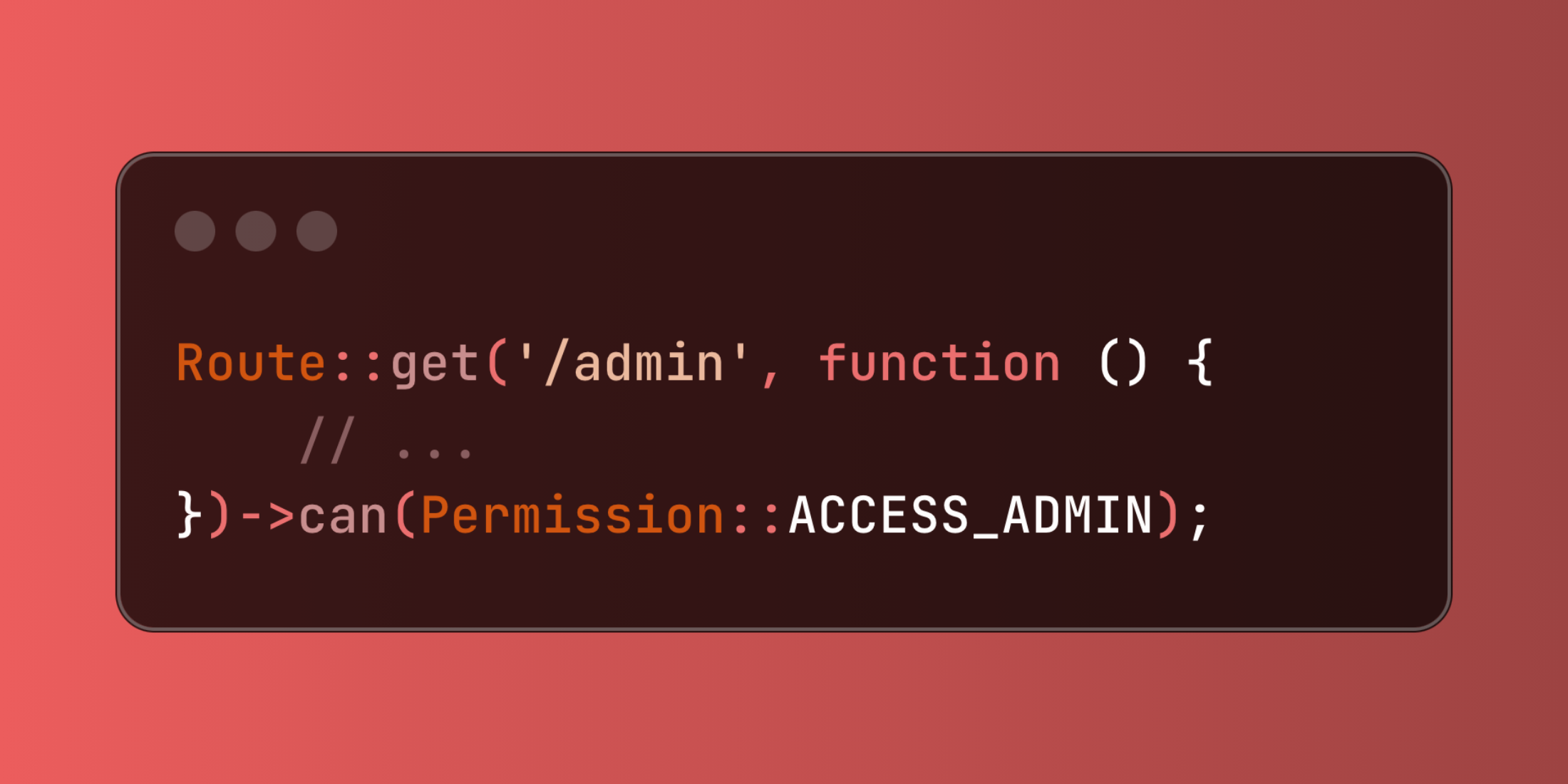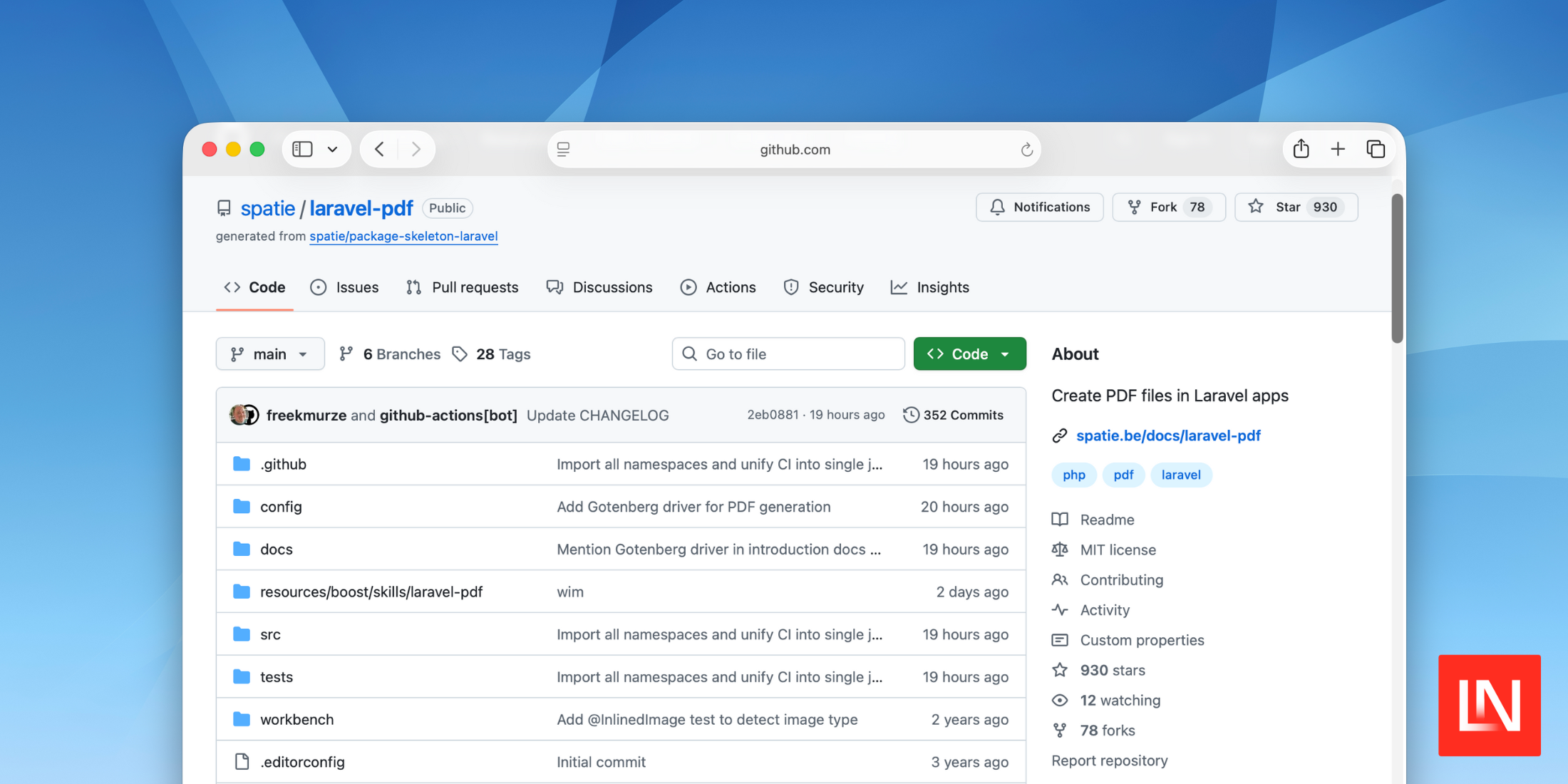Laravel has simplified permission checks in routes by adding direct enum support to the can() method. This enhancement eliminates the need to access the enum's value property explicitly, resulting in cleaner and more expressive route definitions.
This feature particularly shines when building admin panels or multi-tenant applications where permission management is crucial, and you want to leverage PHP's type safety features.
Route::get('/admin', function () { // ...})->can(Permission::ACCESS_ADMIN);Here's how to implement role-based routing in an admin panel:
// app/Enums/AdminAccess.php <?php namespace App\Enums; enum AdminAccess: string{ case VIEW_REPORTS = 'view_reports'; case MANAGE_STAFF = 'manage_staff'; case EDIT_CONFIG = 'edit_config';} // web.phpRoute::prefix('admin')->group(function () { Route::get('/reports', ReportController::class) ->can(AdminAccess::VIEW_REPORTS); Route::get('/staff', StaffController::class) ->can(AdminAccess::MANAGE_STAFF); Route::post('/config', ConfigController::class) ->can(AdminAccess::EDIT_CONFIG);});The route definitions become more intuitive and maintainable:
// Previous approach->can(AdminAccess::MANAGE_STAFF->value)// New, cleaner approach->can(AdminAccess::MANAGE_STAFF)The enhanced can() method makes your permission-based routing more elegant while maintaining the benefits of PHP's type system.

















